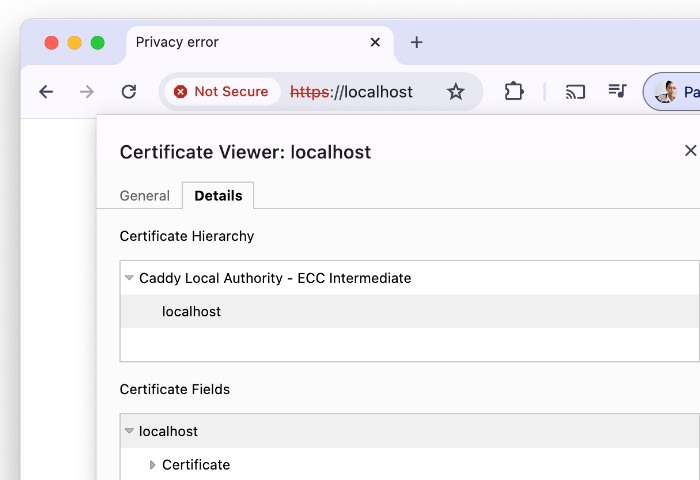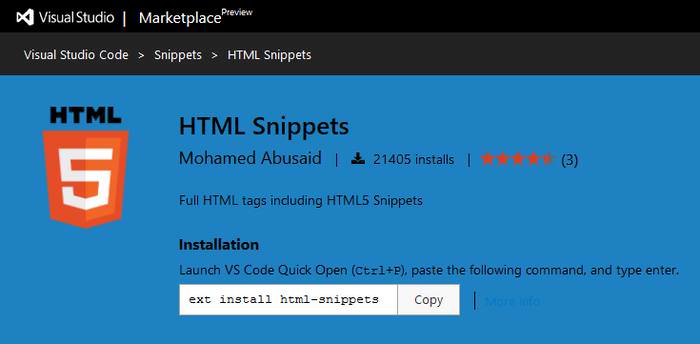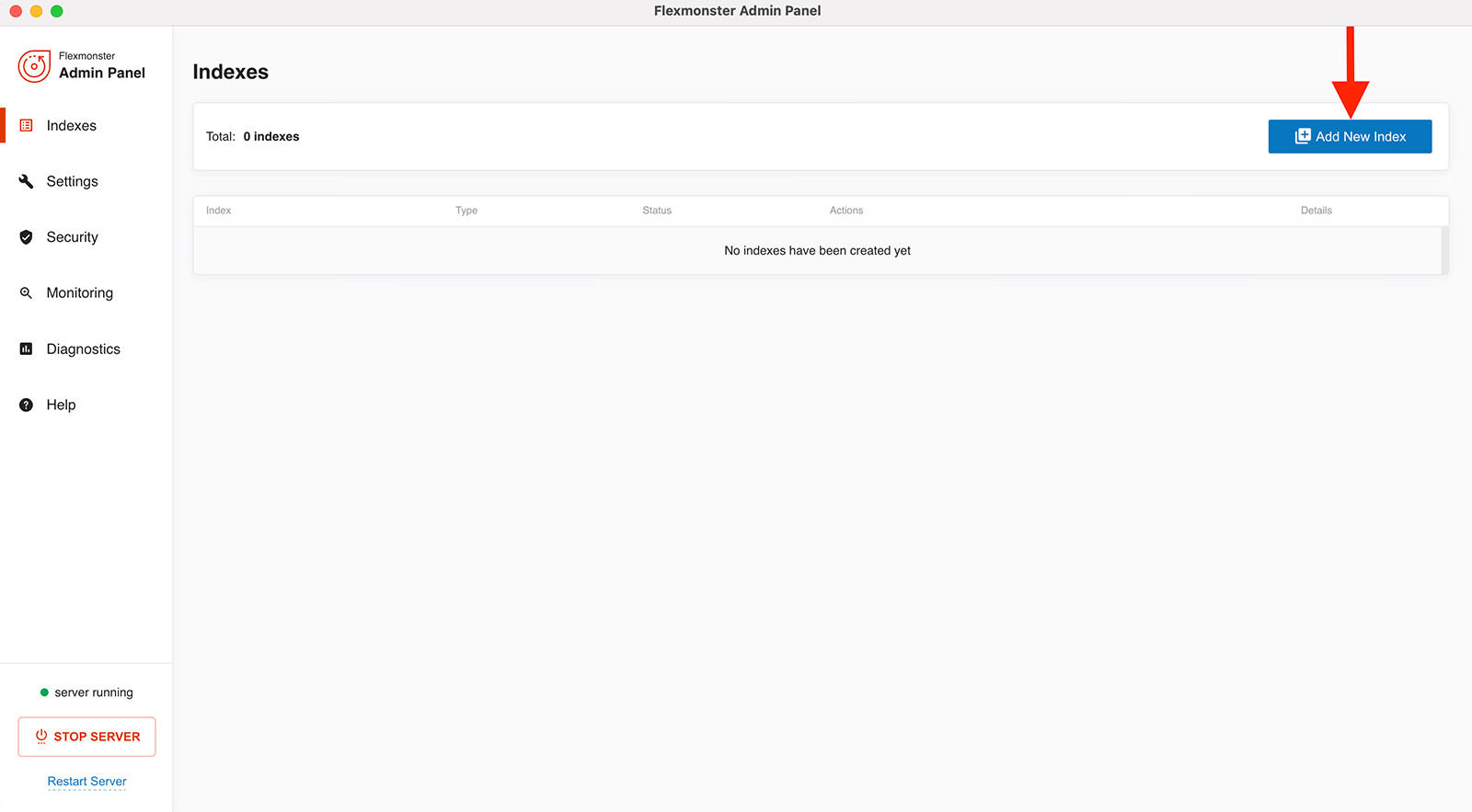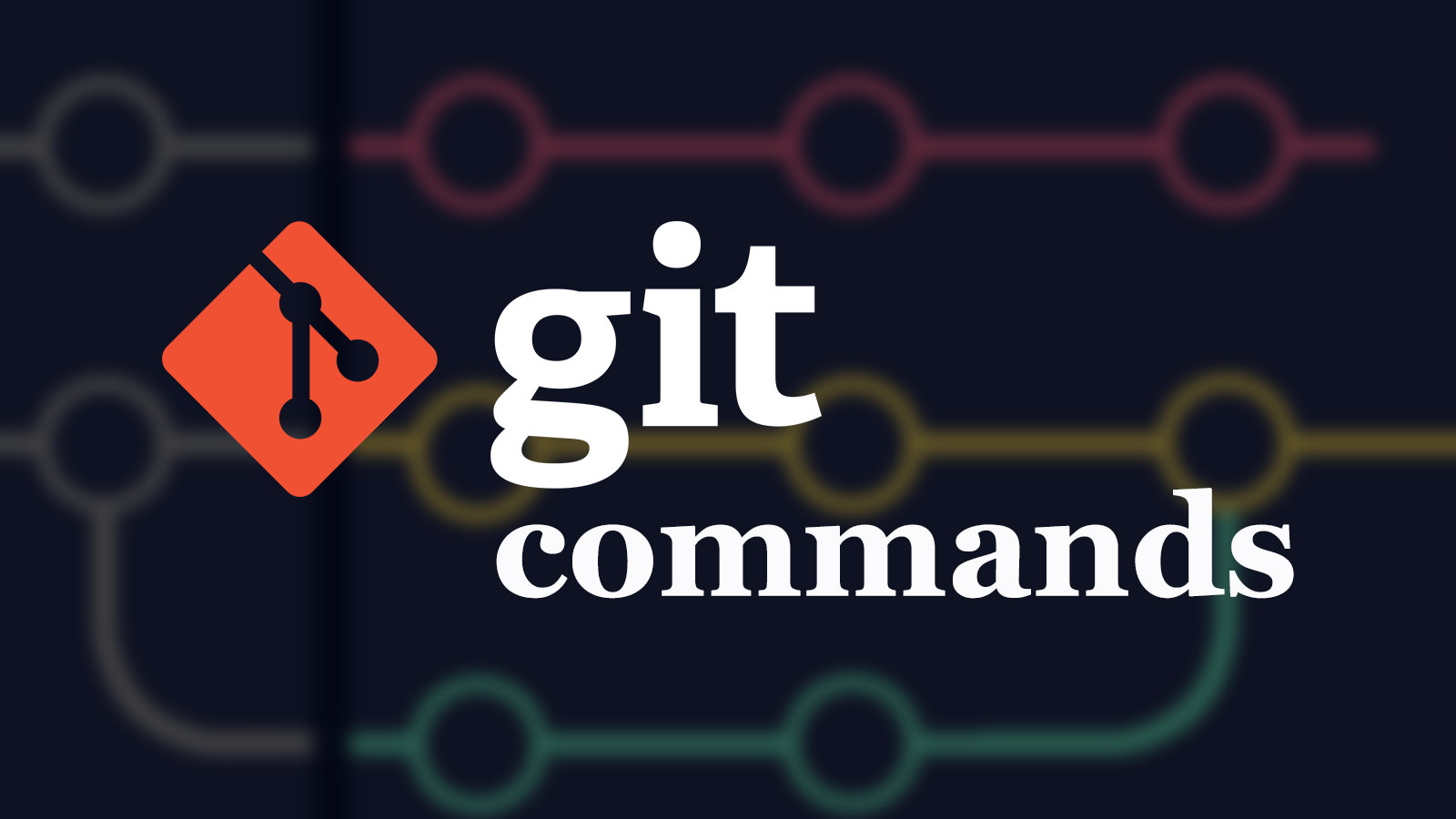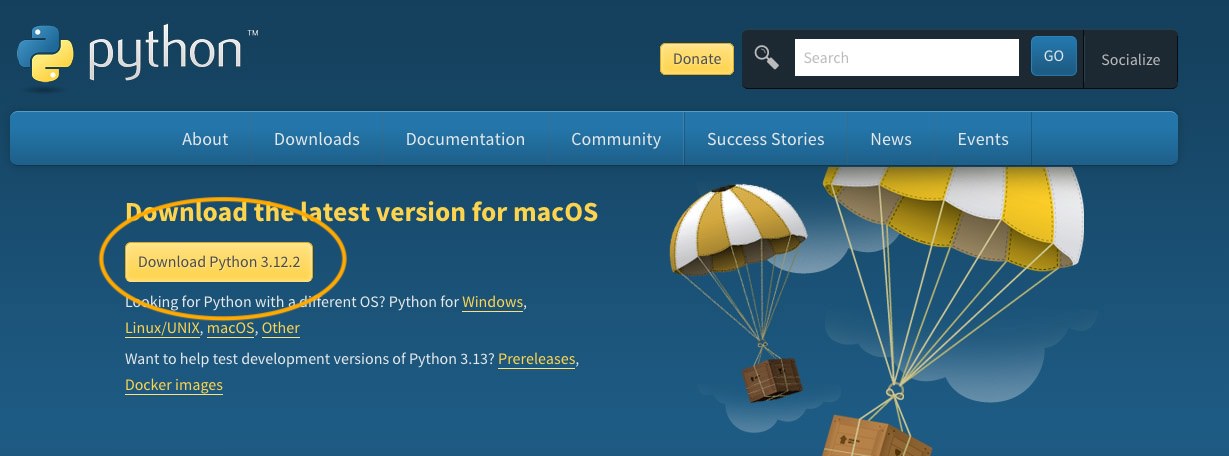While Laravel is popular for its rich features and ease of use, there are many other PHP frameworks that might better suit your needs.
In this article, we will explore 10 great alternatives to Laravel, each with its own unique strengths and features. Whether you’re looking for something lightweight, highly customizable, or built for high performance, I believe there’s an option here for you.
Without further ado, let’s jump in to see the full list.
FrameworkX
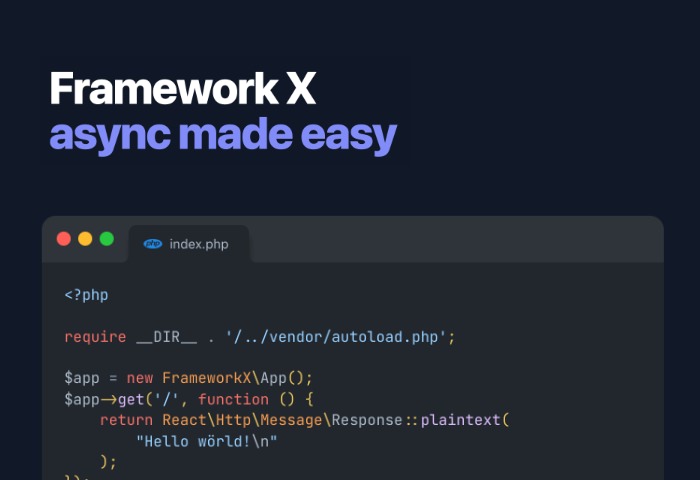
FrameworkX is a lightweight PHP microframework created by Christian Luck, designed for building high-performance, real-time applications. It uses an event-driven, non-blocking architecture based on ReactPHP components, making it ideal for high-concurrency and real-time updates such as chat apps and live notifications.
Unlike Laravel, FrameworkX is minimalistic and doesn’t include built-in features like an ORM, templating engine, or expressive helper functions. This minimalism provides flexibility, allowing you to choose and integrate your own preferred libraries for templating, database abstraction, and other functionalities.
Check out our post on how to get started with FrameworkX.
PHP Minimum Requirement: 7.1
PROS
- High-performance and real-time capabilities
- Lightweight and minimalistic
- Event-driven architecture based on ReactPHP components
CONS
- Requires more manual integration to incorporate other features
- Less expressive syntax compared to Laravel
- Requires some getting used to if you are not familiar with event-driven architecture
CodeIgniter
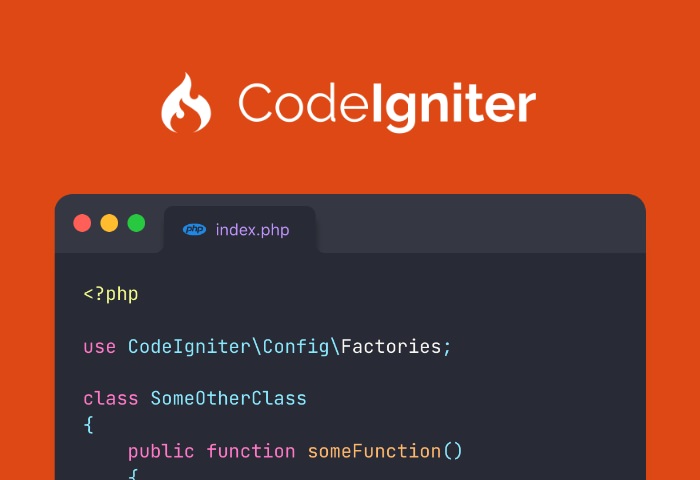
CodeIgniter is a lightweight PHP framework originally developed by EllisLab and now maintained by the CodeIgniter Foundation. Similar to Laravel, it follows a more structured architecture and offers many essential features for an MVC framework.
However, it lacks some of Laravel’s expressive syntax, like the Eloquent ORM and built-in front-end integrations. Despite this, its simplicity makes it easy to pick up for developers with fair experience in PHP, object-oriented programming, and MVC concepts.
PHP Minimum Requirement: 8.1
PROS
- Lean, minimal, and easy to learn
- Good documentation and community support
- Built-in page cache module
CONS
- Smaller ecosystem compared to Laravel
- No built-in ORM
- No built-in templating engine like Blade
- Lack of expressive syntax
- Lack of built-in front-end integration
Laminas
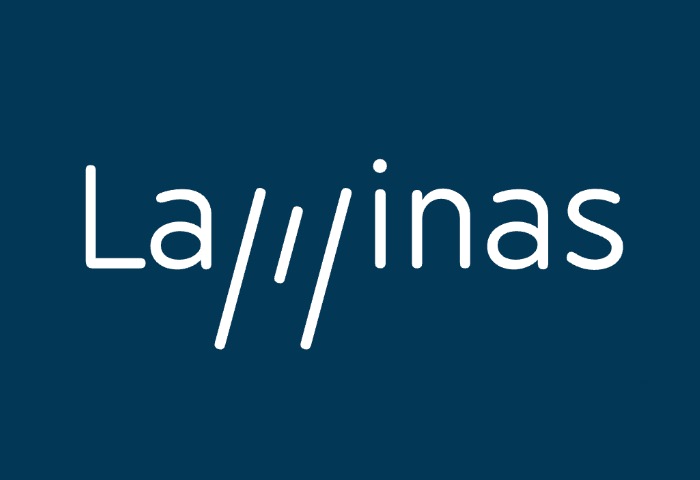
Laminas, formerly known as Zend Framework, is a PHP framework designed for enterprise-grade applications. It offers a collection of professional PHP packages for developing web applications and services. These components are framework-agnostic and comply with PSR (PHP Standard Recommendations), so they can be used outside Laminas.
Laminas differs significantly from Laravel. While Laravel focuses on developer experience, rapid development, and includes full-stack features built-in like Eloquent ORM and Blade, Laminas offers a more modular approach. It provides more flexibility but may require more configuration and setup time compared to Laravel.
PHP Minimum Requirement: 8.1.0
PROS
- Highly modular and customizable
- Strong focus on security and enterprise-level features
- Scalable and suitable for large-scale applications
- First-party ecosystem: Mezzio, API Tools, and MVC framework
CONS
- Less expressive syntax
- No built-in CLI, ORM, and templating engine
- May require more manual integration for some of its components
Slim
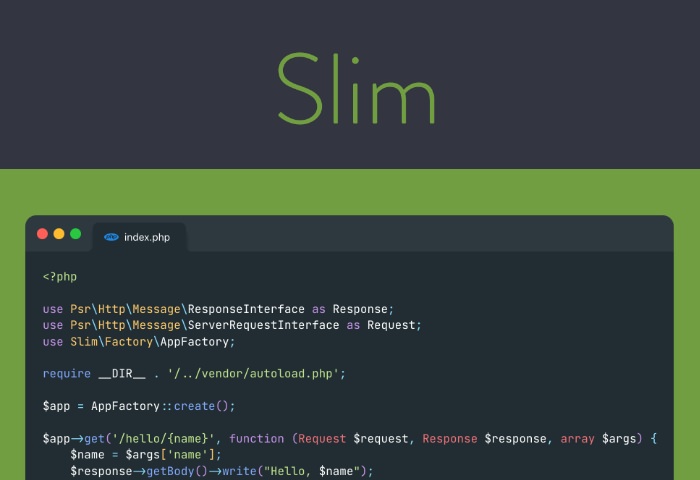
Slim is a PHP micro-framework developed by Josh Lockhart that focuses on essentials like routing, middleware, and HTTP request handling.
Unlike Laravel’s full-stack approach, Slim does not include a full MVC layer, a native template engine, or a database abstraction layer, so you’ll need to use your own preferred libraries and components if you need one.
This minimal footprint, however, makes Slim a great choice if you’re looking to create lightweight RESTful APIs or microservices.
PHP Minimum Requirement: 8.1
PROS
- Lightweight and fast
- Simple and easy to use
- Ideal for small to medium-sized projects and APIs
- Extensible with middleware and third-party components
CONS
- Limited built-in features compared to full-stack frameworks
- Requires additional libraries for ORM and templating engine
Nette
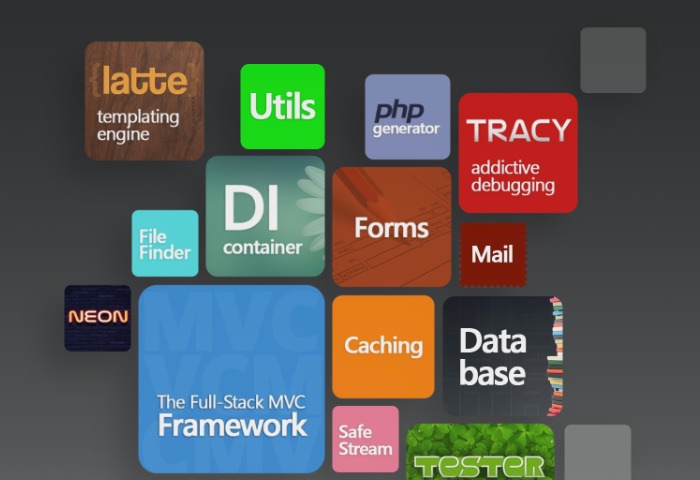
Nette is a mature and feature-rich PHP framework created by David Grudl. It offers a comprehensive set of tools and components for building web applications, including a powerful templating engine called Latte, forms handling, database abstraction, and many other components.
Nette differs from Laravel in its focus. While Laravel prioritizes developer experience with features like Eloquent ORM, Blade, and the Artisan CLI included and pre-configured, Nette provides its first-party components separately. This allows you to choose which tools and libraries you’d need to include in your project. Despite its modularity, it provides a base application or skeleton to help you quickly start your projects.
PHP Minimum Requirement: 8.1
PROS
- Matured and battle-tested framework, built since 2004
- Comprehensive set of tools and components for building websites
- Provides base or skeleton with flexible structure
- Powerful templating engine: Latte
- Good documentation and community support
CONS
- Less opinionated than Laravel
- Requires more manual configuration and setup
- Smaller ecosystem compared to Laravel
Phalcon
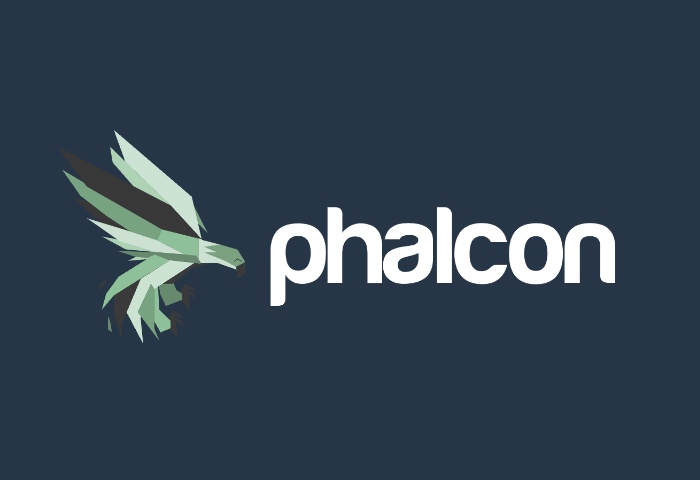
Phalcon is a unique PHP framework. Unlike the others, it is delivered as a C extension. Designed to optimize speed by bypassing PHP’s interpreter and leveraging lower-level system resources directly, it includes full-stack features like a first-party ORM library, router, caching, and more.
Phalcon sets itself apart from Laravel with its architecture as a C extension. Unlike Laravel, which is implemented purely in PHP, Phalcon requires installing a PHP extension, so you need to be comfortable with commands like apt and PHP .ini configuration files to enable the extension. I think Phalcon is ideal for projects where performance is critical and can handle heavy workloads with minimal overhead.
PHP Minimum Requirement: 8.0
PROS
- High performance due to its nature as a C extension
- Full-stack features included like ORM, caching, dependency injection, i18n, templating engine, and router
CONS
- Requires installing a PHP extension, which can be overwhelming for beginners
- Much smaller ecosystem compared to Laravel
Yii2
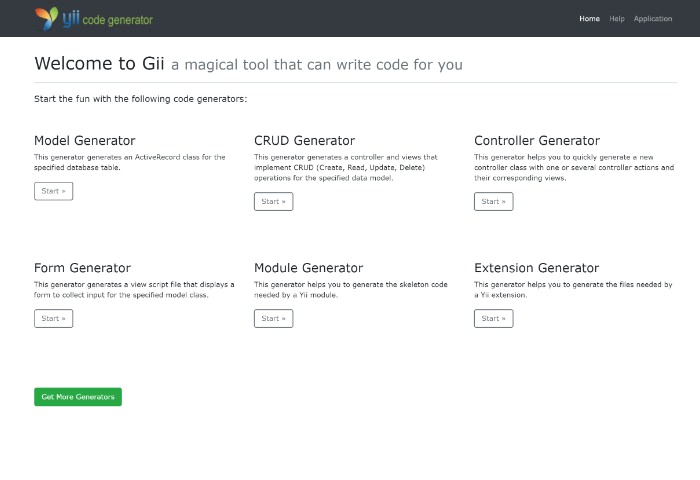
Yii2 is a PHP framework created by Qiang Xue, offering extensive features like an ORM, RESTful API, debugging tools, a boilerplate generator, and much more.
Yii2, I think, is quite similar to Laravel in its approach and principles. Unlike some frameworks where features are in separate modules, Yii2 has them built-in and pre-configured with MVC architecture. It also provides a starter kit with basic interfaces and functionality, similar to Laravel Breeze. Additionally, Yii2 also provides solid first-party modules like the Mailing module, i18n module, Docker for localhost, a first-party templating engine, and front-end integration with Bootstrap.
PHP Minimum Requirement: 7.3
PROS
- Support for PHP 7.3, if you still need it
- One of the earliest frameworks in PHP. It’s solid and battle-tested
- First-party modules and tools included and pre-configured
- Gii, one of its unique features to generate codes
- Great documentation and community support
CONS
- Smaller ecosystem compared to Laravel
- Less expressive syntax compared to Laravel
- Has a somewhat unusual namespacing pattern
Spiral

Spiral is a high-performance PHP framework developed by the team at Spiral Scout. It is built around RoadRunner, a PHP application server written in Go, which enables it to handle heavy workloads efficiently and reduce the overhead that may commonly occur in traditional PHP applications.
Spiral uses a classic MVC approach and features a routing system similar to Laravel. However, it exclusively runs with RoadRunner, offering twice the performance out of the box compared to typical PHP MVC frameworks. It also includes components like JOBS, Worker, and BirdDog, specifically optimized for RoadRunner, leading to more optimized and faster applications.
PHP Minimum Requirement: 8.1
PROS
- High performance due to its integration with RoadRunner
- General-purpose framework that allows you to build MVC, CQRS, Event-Driven, and CLI apps
- First-party ORM library, CycleORM, which I think looks neat!
CONS
- Some learning curves, probably requires learning RoadRunner and how it works
- Smaller ecosystem compared to Laravel
Neutomic
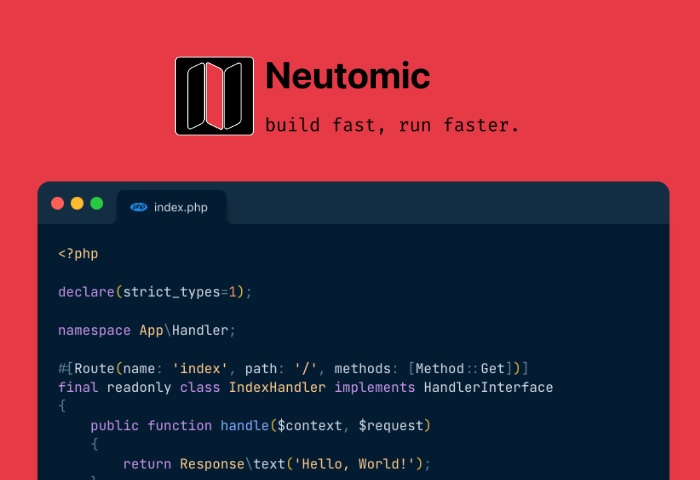
Neutomic is a lightweight PHP framework designed for environments that require long-running processes. Built on top of RevoltPHP, Neutomic supports event-driven, non-blocking I/O operations, making it efficient for handling concurrent tasks.
Neutomic differs from Laravel in its use of an event-driven, non-blocking architecture, while Laravel uses a traditional synchronous design by default. Neutomic requires third-party libraries for features like ORM and templating, whereas Laravel includes these features built-in. To get started with an example of a Neutomic application, you can check out the skeleton repository at neutomic/skeleton.
PHP Minimum Requirement: 8.3
PROS
- Lightweight and minimalistic
- High-performance and efficient for handling concurrent tasks
- Event-driven architecture based on RevoltPHP and Amp components
CONS
- Requires more manual integration to incorporate other features, but it provides a skeleton to help you get started
- Less expressive syntax compared to Laravel
- Requires some getting used to if you are not familiar with event-driven architecture
The post 10 Alternative Frameworks to Laravel appeared first on Hongkiat.
